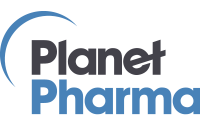No matter the market conditions, it is always critical to catch the attention of top talent and writing a good job description is an important step in the hiring process. While a fascinating and unique write-up can attract potential candidates, a lackluster job description can make them pass right over your opportunity, even if the role is well-suited to their qualifications. Here are seven tips for writing an engaging, interest-catching job description.
1. Know Your Audience
Consider the specific industry you are trying to target when writing an effective description. The industry, more than any other factor, dictates the style of the write-up. A catchy opener describing perks may be very appealing to job seekers in the Tech or HR fields, but Life Sciences job seekers may be more interested in the science and specifics of the role.
Also, remember that entry-level and senior-level professionals are very different. What works for one job description may not work for another. A senior-level description should have a stronger focus on managerial responsibilities or emphasize higher education credentials, while entry-level write-ups should promote “an excellent opportunity for learning” or “a chance to break into the field.”
2. Ask Questions
Asking questions allows candidates to feel as though they are connecting with the role on a more personal level. For example, if your description begins with, “How would you like to work for a company that is changing the landscape of oncology and the treatment of lung cancer?” that’s a pretty great hook. Candidates will be more inclined to keep reading as they focus more on their personal needs. These kinds of questions show that the company has a strategic goal and shared purpose.
3. Promote Unique Features
When promoting a truly exciting company, talk about it! Describe the exceptional culture, perks, community service opportunities, financial success and reputation. Demonstrate how the organization and role stand out from all the rest. Mention a particular benefit or element of the company’s culture, such as “daily catered lunches” or “office closed from Christmas to New Year’s.” And talk about the purpose. Identify what is unique and special and tout it!
4. Respect the Written Word
The written word remains a powerful vehicle for communication. Treat it respectfully and the reader will respond positively; be careless and you will turn-off job seekers and leave your brand with a black mark. A job description littered with typos, grammar mistakes, and improper punctuation is unprofessional. From the job seeker’s perspective, if the company didn’t put time and attention into producing a clean and readable job description, why should they put time into reading it and applying for the job?
5. Be Approachable – and Specific
For most positions, use a conversational tone when creating job descriptions. Stay away from jargon, slang, or the need to reference a dictionary. The way it’s written should never be a distraction. However, for positions with highly specialized skills in industries like Life Sciences, Biotech, Pharmaceuticals, Technology or Healthcare, be specific about the experience, education and background candidates need. Provide detail about the type of advanced degrees, lab experience or tech stacks that employees must have.
6. Keep It Concise and Comprehensive
A job description should stay on point and avoid wordy language and irrelevant information. Readers are likely poring through many ads, so one that is excessively long may lose candidates before they reach the end. Before posting any job description, edit it to cut out extra or unnecessary information and clean up the mistakes and typos. Have a colleague read it to give you suggestions to make it tighter.
A strong job description is well-written and includes interesting and specific details about the company and role. If your readers feel you have substantial and insightful information to share, they will be more inclined to read further and take the next step.
7. Detail the Application Process
Provide specific directions for how candidates can apply for the job—what to send, to whom, and where. Offer a thorough list of the job requirements so they can easily determine if they are qualified for the position. Be clear about the hours—is the job full-time or part-time? For many applicants, the number of hours is non-negotiable. Also include information about remote work options. Does the employee need to be in the office all the time or could some, or all, of the work be done from home?
The clarity in the directions will ease the application process and ensure a positive experience for job seekers from the start of their interaction with your company.
Following these tips can set your company apart from the crowd and help you attract the right talent for your open positions.
Photo Credit: Lisa Fotios from Pexels
How to Create an Effective Pharmaceutical Resume
Your resume is often the first impression you make on a prospective employer in the pharmaceutical industry, so it’s essential to ensure it effectively showcases your skills, experience, and qualifications. Here are some tips for creating an effective pharmaceutical resume that stands out from the competition: Tailor Your Resume to the Job: Customize your resume…
Planet Pharma EU’s October MVP: Mona Azhari
We’re highlighting some of the amazing people who make up our Planet Pharma. Today, let’s get to know Mona Azhari with our Planet Pharma EU team. Name: Mona Azhari Job Title: Recruitment Team Lead How does it feel to be recognised by your colleagues and what was your secret to success this month?…
Planet Pharma EU’s September MVP: Alastair Aitken
We’re highlighting some of the amazing people who make up our Planet Pharma. Today, let’s get to know Alastair Aitken with our Planet Pharma EU team. Name: Alastair Aitken Job Title: Principal Recruiter How does it feel to be recognised by your colleagues and what was your secret to success this month? Feels…



